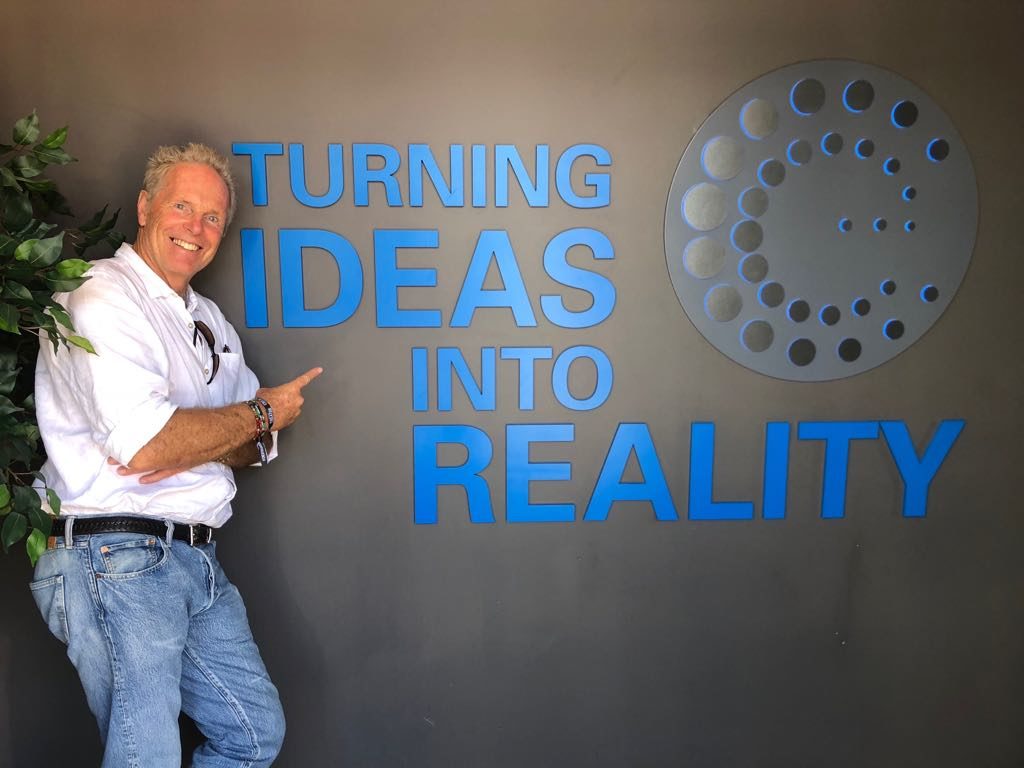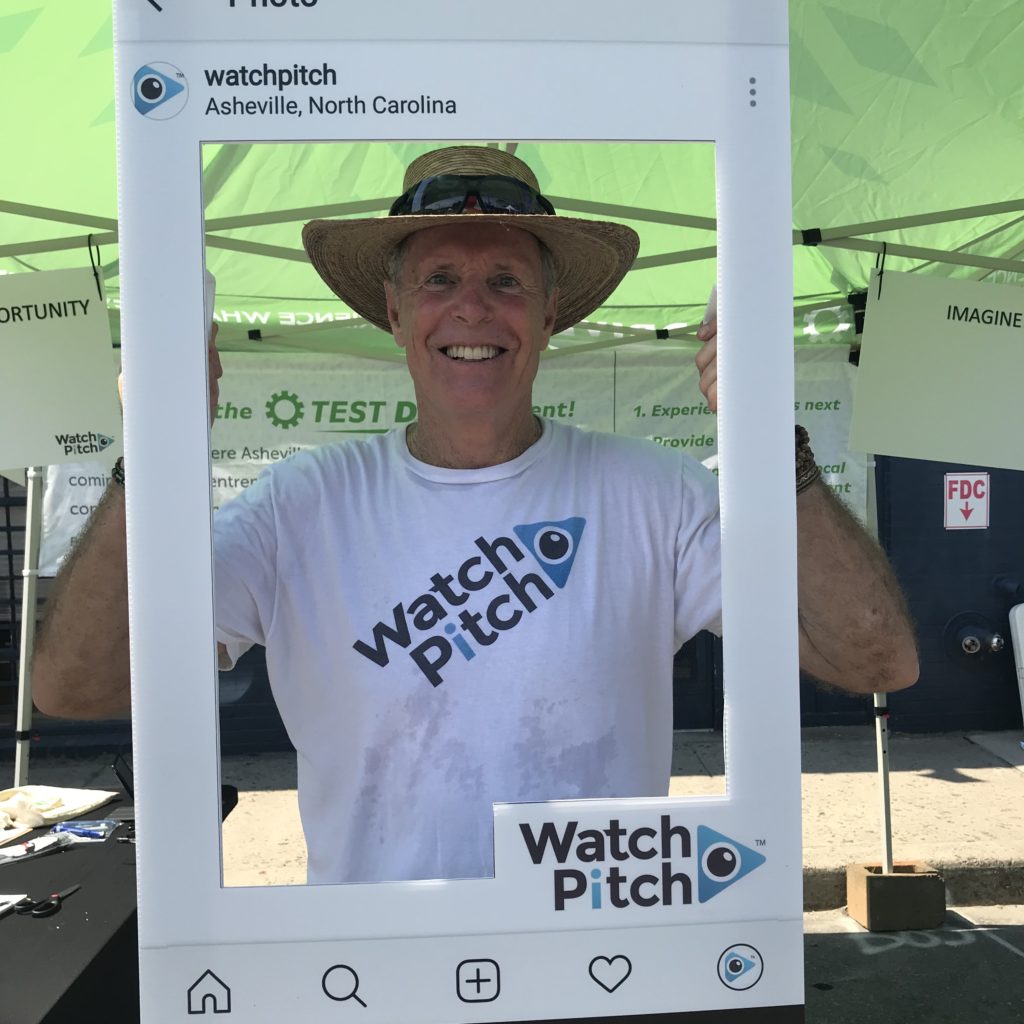What’s your story? Q&A series, part 3
In the mountains of North Carolina, a former journalist turned tech founder is reinventing the way startups and investors interact. After many years working as a CBS News reporter, Trey left the newsroom to follow his passion for sustainability, founding Solar Spirals, a social enterprise that managed renewable energy projects around the world. He was quickly invited to serve as a member of the United Nations Foundation, attending monthly energy access forums from New York to Tanzania. Yet throughout this global entrepreneurial adventure, he never lost his love of storytelling. In fact, it grew. As Trey became more immersed in entrepreneurship (he was also launching and running a film production company back home in Asheville), he saw his startup peers continue to face the same problem: connecting with investors was an intimidating, time-consuming process that left many world-changing ideas unfunded. So, in 2016, Trey founded WatchPitch, a matchmaking platform that helps entrepreneurs craft a compelling, 60-second video pitch, and helps verified investors view, rate, and follow-up on the pitches. The app has empowered capital connections in multiple languages, from Atlanta to Tel Aviv.
Here, Trey shares why the traditional deal flow process is broken, what makes a compelling pitch, and why you should start — or invest in — business in the South.

What inspired you to start WatchPitch?
As a filmmaker, many of my clients are requesting “clickable content” for their websites. People these days are clicking not scrolling as much. Two big events collided to inspire the action that led to bootstrapping WatchPitch: emerging and developing country work and attending a startup conference focused on angel investing here in Asheville. People globally are transacting with their mobile technology more and more. In parallel, new businesses are being launched every day and they all need capital. Surprisingly, investors struggle to gain early access to investment opportunities. My “10,000-hours” of storytelling as a profession realized connecting opportunity with capital was just a clickable, communication problem waiting to be solved. WatchPitch was launched to solve this shared frustration to connect resources with opportunity on a global scale.
Why is the traditional deal flow process broken for both entrepreneurs and investors?
One word: time. Once an entrepreneur realizes they need capital to launch, grow and/or scale their business, the search begins with family and friends. This gets exhausted quickly so the next step tends to be the search for investors. And this group has their own “firewalls” and vetting cultures to curate opportunity very slowly, by design. We have talked with nearly 100 investors, large and small and they all admit privately that they are missing out on early access to opportunities. And those entrepreneur startups, well 82% will fail for lack of capital in the first 18 months. That is a lot of potential for change and innovation dying on the vine of aspiration. WatchPitch aims to bridge this gap and ignite the deal flow process to be more responsive to opportunity.
We imagine you’ve seen A LOT of startup pitches. What’s your best piece of advice for entrepreneurs ready to create a more impactful pitch?
We have repeatedly referred to the principal and adage that, “investors invest in the jockey, not the horse.” This translates into the investor focus on execution and the founder’s ability to take a brilliant idea to the finish line. This takes passion at the center of it all and this is what investors can read in a pitch in a matter of seconds. The most impactful pitch is going to be when that passion is on display and captured in the delivery of their idea and business proposition. If that is missing, then we always encourage our WatchPitch’ers to go back and get it right before delivering it to investors. A 60-second passionate pitch is not going to close a deal, but it will open the door for a deeper discussion.

You describe WatchPitch as the “Tinder” for entrepreneurs and investors — could you share 1-2 matchmaking stories from the app?
One particular partnership we are proud of is with the Bridge Program, a commercialization initiative from the startup community in Tel Aviv with Coca Cola, Mercedes Benz and AT&T’s Warner Media division. Entrepreneurs with innovative tech have used WatchPitch to begin the process of being evaluated for program participation. There are a lot of applicants who want to participate. WatchPitch was used to begin the selection process. These sorts of accelerator initiatives are happening globally, and we look to work with many of them in 2019. We have a similar relationship in development with WeWork’s Creator Awards.
Where do you see angel investing and venture capital trending in the next few years, particularly in the South?
Well I am not sure I am qualified to answer that, but one place I would take a risk and respond is in the area of the consolidation of funding decisions with angels in particular. The idea with angel investors in many respects is to allow for independent initiatives with each of the angels to decide democratically with their angel network which opportunities to fund and which not to fund. Many times there are side deals made independently of the fund between entrepreneurs and individual angels. This is good for the entrepreneur but can dilute participation for the larger angel fund. Lately, Index Funds are being formed by angel groups, similar to VC’s in a funding round to create a fund with guaranteed returns. For the passive angel investor, this is convenient. It is also helpful for the angel network not to have to continually engage angel investors in every monthly decision and opportunity. This is not good news for entrepreneurs, however, because there will be less of a motivation for the networks to consider riskier but perhaps more innovative initiatives from the startup community.
You’re also the CEO of Three Flames Productions, a brand development and video production company focused on creating experiences through story. Why is storytelling important in building a business?
Our brains are hardwired for story. We build meaning in sequences or chapters. If the value proposition of a company misses out on connecting that to a story, you are dependent on a person remembering a tagline or mission statement. How many of those rise to the top of mind over the course of a day? Over a week? A month? A year? Traditional approaches have been repetition, repetition, repetition to get to top of mind. Storytelling is a hack. Tell a good story and everyone remembers who you are.

Crafting a compelling story (whether for brand marketing or a startup pitch) can feel like a daunting task. Could you share a couple of tips to help entrepreneurs or marketers tackle the storytelling process?
We share some great suggestions and pitch coaching tips on the WatchPitch site and app, so please check them out. One invaluable tip to apply to any pitch is the invitation to imagine. Once we engage a person’s imagination, they are open and undefended which you need them to be for any pitch that is focused on building a new relationship. But a pitch naturally is associated with an ask. And an ask, well, causes a knee-jerk response to protect what we have. By inviting the audience to imagine the possibilities of your solution to solve a problem, you engage them as a partner rather than as a resource.
Tell us about the entrepreneurial scene in Asheville. Why did you chose to base your company there?
The entrepreneurial scene in Asheville is booming and shifting like any healthy ecosystem exploring and courting economic growth. There is culture in Asheville that many agree on in terms of valuing the outdoors, mountain living and healthy lifestyles. We are based currently in Asheville but here’s what we are discovering; our marketplace is the world, 5-continents, and in order to be effective we have to travel and engage partners globally. Asheville doesn’t have the economic drivers to meet the demand we need in order to be successful.
Which Southern-based pitch events, networking groups, or startup and investor-related resources should we have on our radar?
Well DIG SOUTH of course! That is at the top of our radar-list. Also, 1 Million Cups is a great regional network resource. We are partners with WeWork so a big shout out to them and actually, any co-working facility is a great place to discover new resources and potential partners for startup and investor relations. I belong to The Collider in Asheville, which has a direct pipeline to the NOAA data center and many members are enterprising that data in important and novel ways. They have their Climate City Expo event happening in late March which should be both inspired and exciting.
What makes the South a great place to start — or invest in — a business?
I think one of the more important dynamics I have discovered in the South is the active engagement of tribe and community. It is palpable. You see it regionally and expressed through college sports and locally with a lot of pride for local foods, beverages and craft. A built-in sense and experience of community allows you take risks. It functions like a safety net and this is often what you need in order to trial a new idea. That’s inspiring for everyone!
Whether you’re an entrepreneur ready to connect with qualified investors, or an investor looking for that next promising idea, we highly encourage you to check out WatchPitch. In fact, we’ll be using the WatchPitch platform to select leading-edge startups for the DIG SOUTH 2019 Wild Pitch Competition. If you or someone you know is ready to pitch in front of 2000+ attendees, be on the lookout for our application announcement. And if you’re an investor or startup supporter, make sure you’re in the audience next April — you can reserve your spot early by clicking here.

